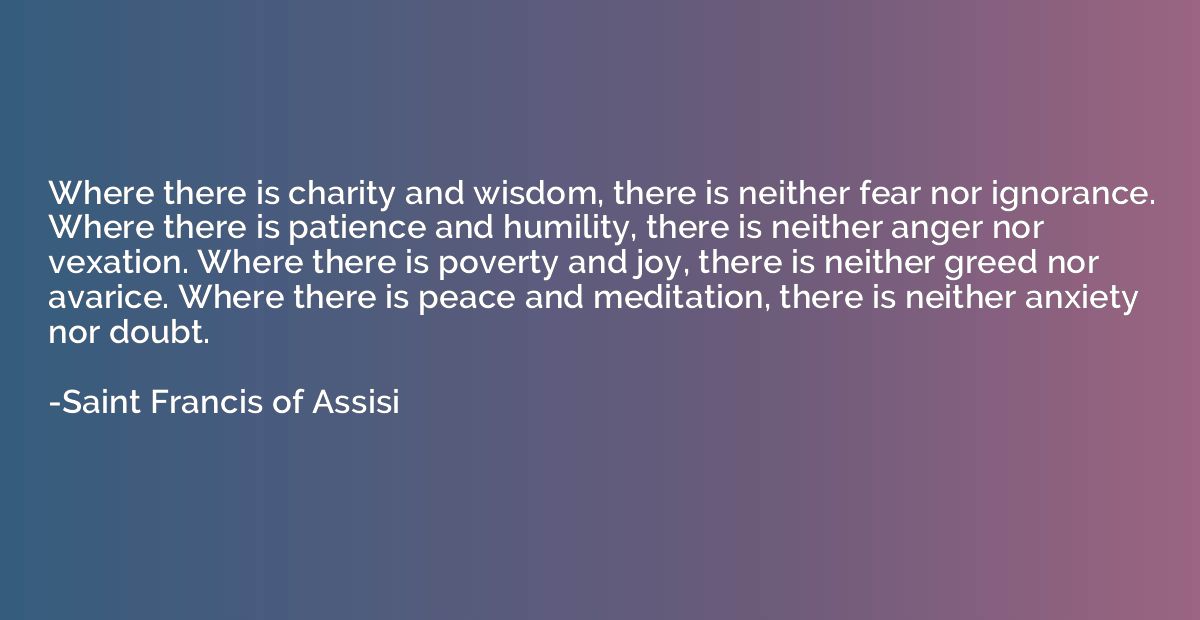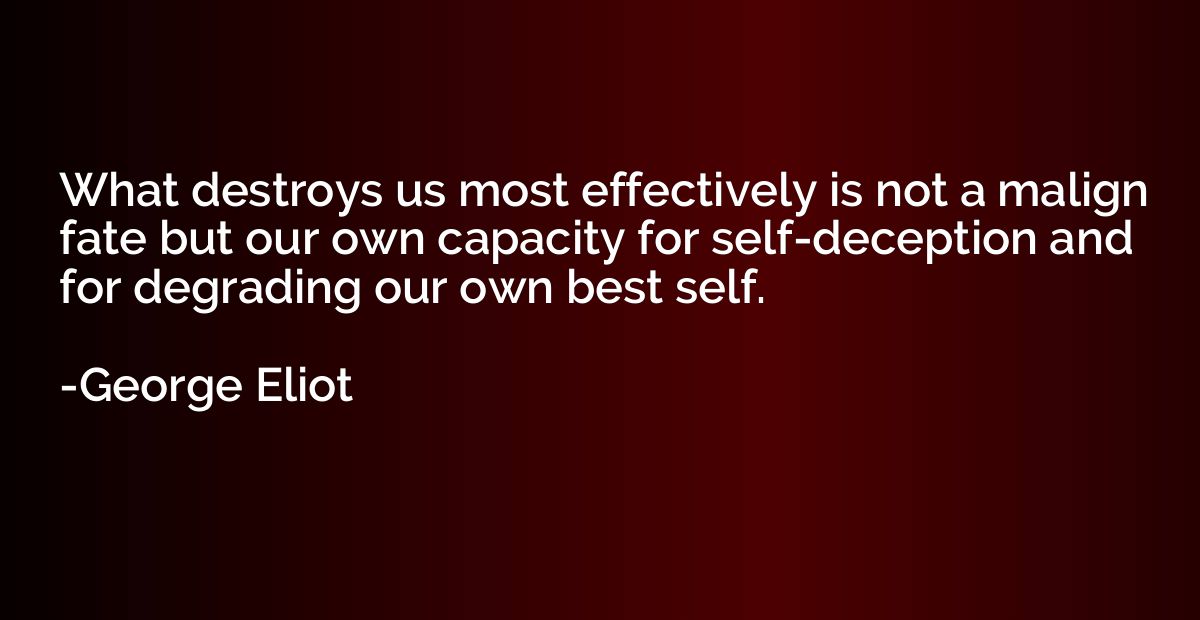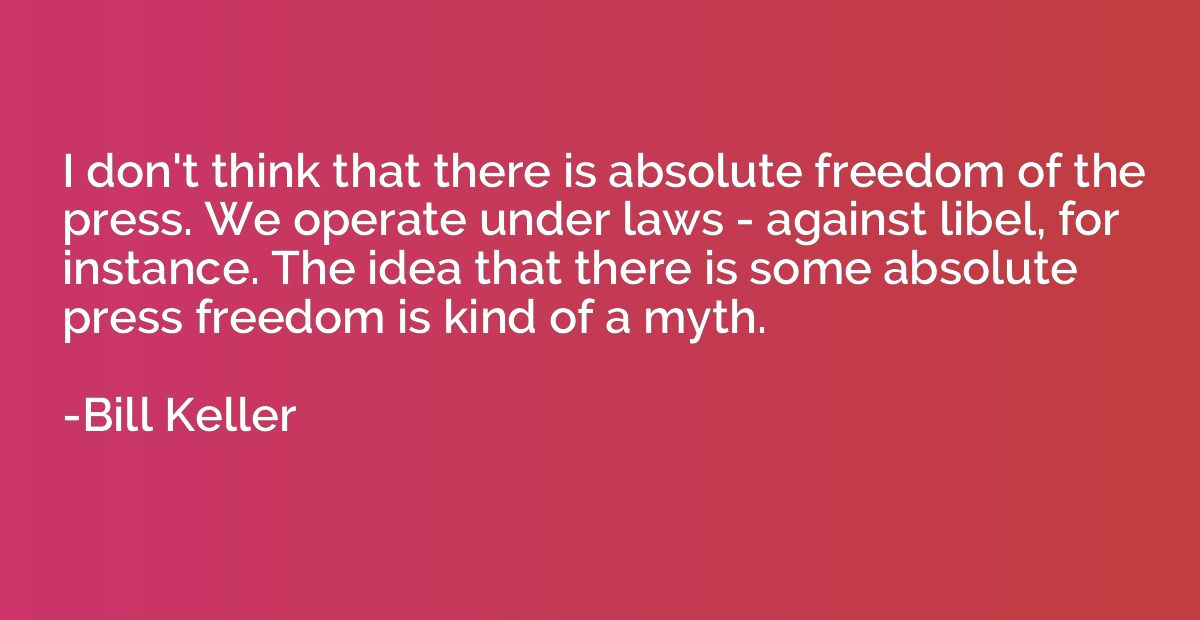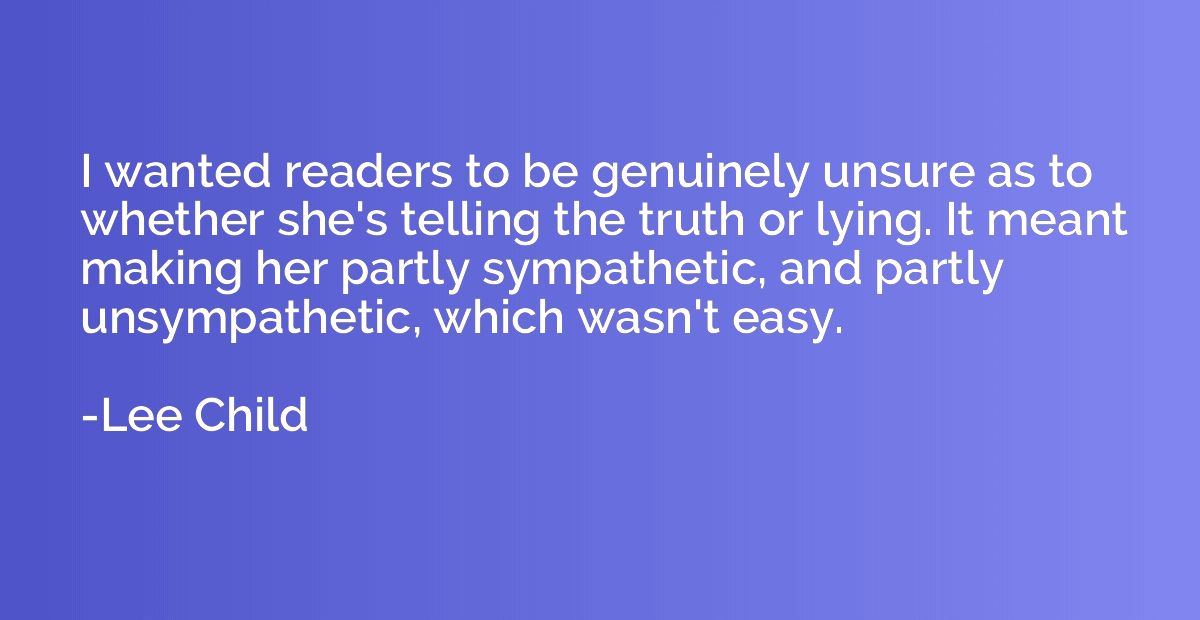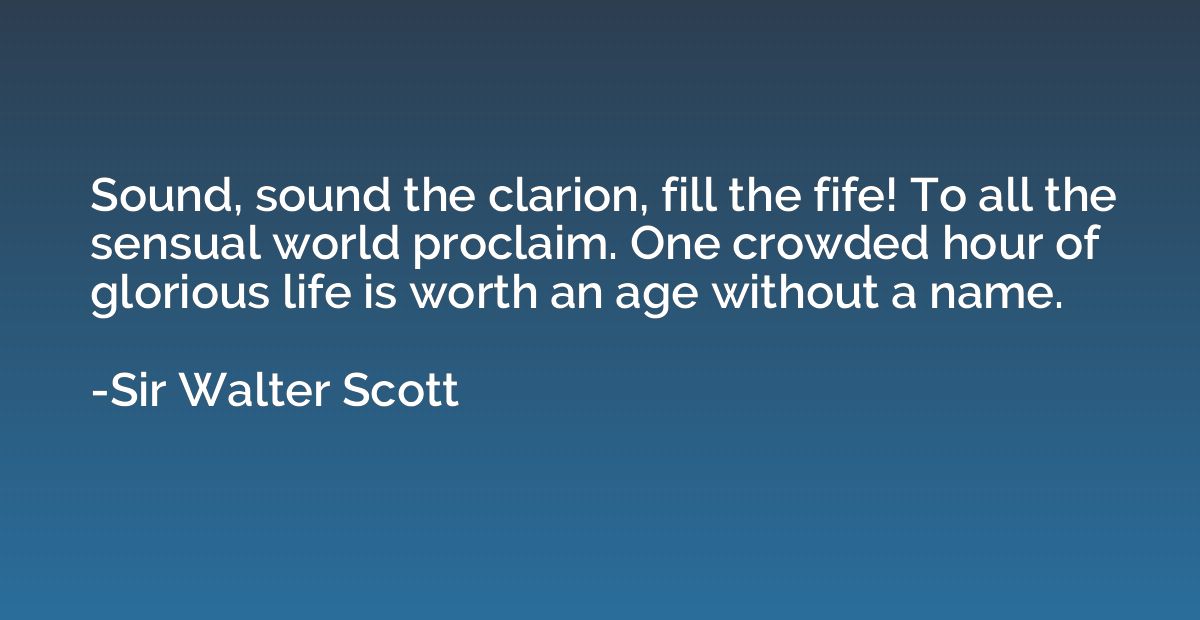Quote by Sharon Maas
She might be without country, without nation, but inside her there was still a being that could exist and be free, that could simply say without adding a this, or a that, without saying I am Indian, Guyanese, English, or anything else in the world.
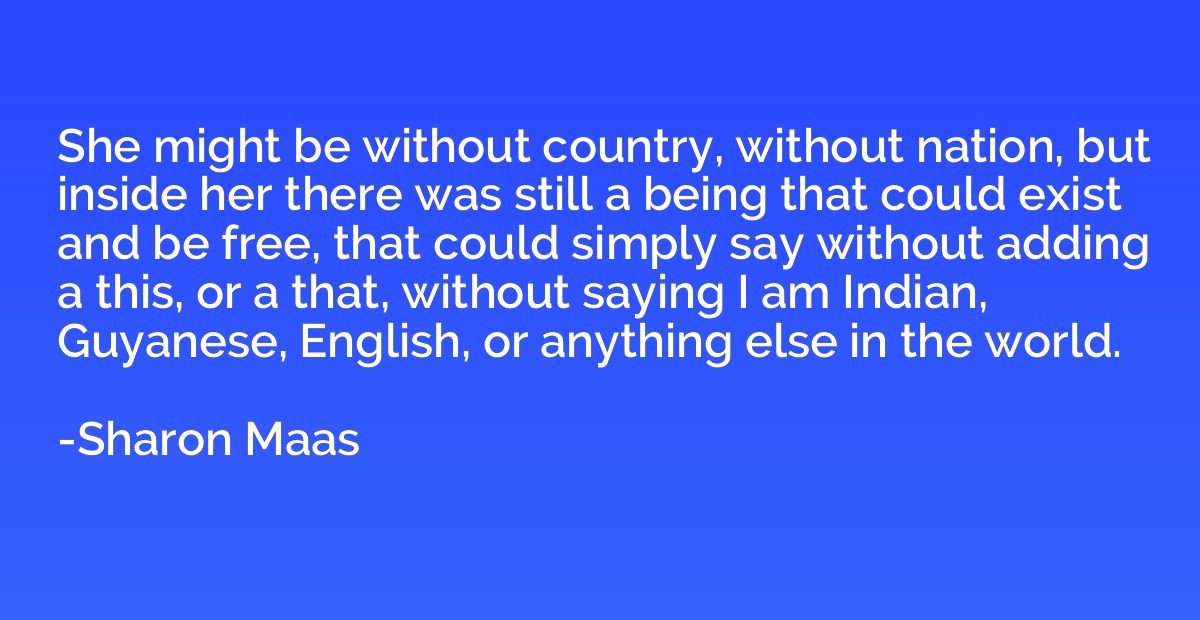
Summary
This quote suggests that despite lacking a specific country or nationality, the person being referred to possesses a sense of inherent freedom. It implies that one can exist without labeling themselves based on their ethnicity, culture, or nationality. The quote emphasizes the idea that there is a core essence within individuals that transcends geographical boundaries and societal expectations, allowing them to simply embrace their own identity without the need for external labels.
Topics
Freedom Attachment Home Identity Inspirational Independence Individuality Empowerment Belonging Homelessness Anchoring
By Sharon Maas



